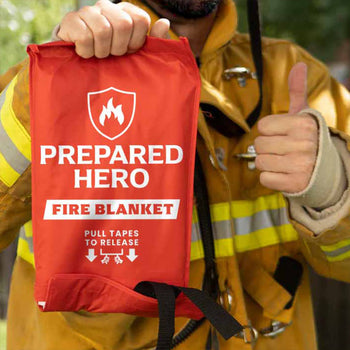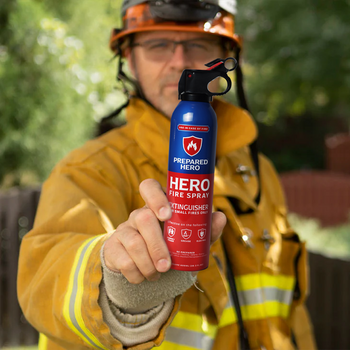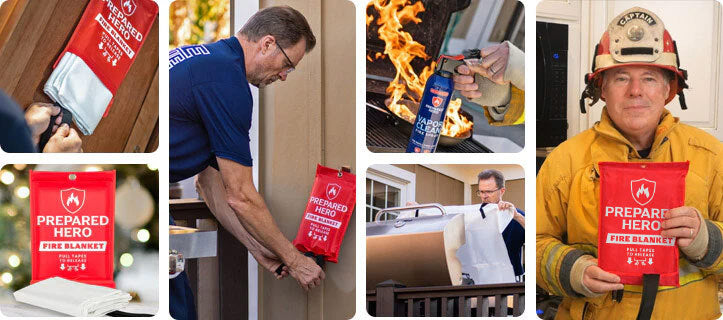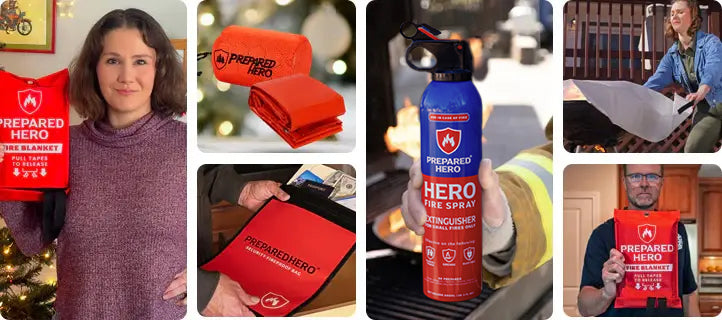Where you put your smoke detectors matters just as much as installing them. Proper placement makes sure they can detect...
Fires caused $12.7 billion in direct property damage in 2021, according to a National Fire Protection Association report.
House fires are horrible, and if you're reading this because your house burned down, we're so sorry for your loss.
In this post, we'll go over what you must do with a burned down house so you can focus on rebuilding your home.
What to Do With a Burned Down House

- Look for a place to stay.
- Contact your insurance company.
- Get a copy of the fire report.
- Protect your home.
- Make a list of everything the fire burned down.
- Check your finances.
- Replace important documents.
- Check on your loved ones.
Dealing with a burned down house takes a huge emotional toll, so we compiled the things you must do to ease the burden.
1. Look for a place to stay.

Since you can't stay in a burned down house, you must first look for a place to stay.
You can call extended family members, friends, or nearby hotels. If you have pets, make sure to call pet-friendly places only.
If you find it challenging to find a place, contact a local chapter of the Red Cross or the Salvation Army. They should be able to help secure a place for you and your family.
If you stay at a hotel, take note that some homeowners insurance includes loss of use coverage. It can help pay for the costs you incur for reasonable housing and other living expenses if a covered event (e.g., a house fire) makes your house temporarily uninhabitable. Hence, keep detailed accounts of your expenses and receipts.
2. Contact your insurance company.

Home insurance policies usually cover physical damages caused by fires. Most providers have claims information on their websites. But if you can't find information on your provider’s site, call them.
Your insurance company will assign you a claims adjuster after filing your claim. The said person will investigate your damages and assess your loss.
While you're not responsible for determining the cause of the fire, try holding on to the item you think started the fire. However, don't risk yourself if the item isn't available. Remember, you shouldn't enter your home until fire authorities allow you to.
In addition, consider hiring an insurance lawyer if you don't want to deal with the claims process yourself.
An insurance lawyer will help you and your family through this hard time more quickly. They'll deal with all insurance company interactions and requirements on your behalf. Plus, they can get you every dollar needed to repair your house, and save you time and effort.
3. Get a copy of the fire report.

A fire report details the following:
- Cause of a fire incident
- Damage or injuries caused
- Lives lost (if any)
- Incident date
- Arrival time
- Location
- Building type
- Projected losses
- Human factors (if any)
- Existence of fire prevention tools like fire sprinkler systems and kitchen fire suppression systems.
The law also requires fire reports to gather important fire safety information and improve fire prevention initiatives.
On top of that, your insurance claims adjuster will require to see the fire report. Since it's a public document in most states, you can easily get the report from the responding fire department.
4. Protect your home.

Most home insurance policies require homeowners to protect the property from further damage after a fire.
Hence, you must do what you can to protect your house from bad weather or thieves. This means telling the authorities that your house has burned down and will be vacant for a while.
Make sure that the police keep a record of this. Doing so gives your insurance provider proof that you did what had to be done to safeguard your house.
5. Make a list of everything the fire burned down.

Since your insurance company will compensate you for content and structure fire damage, you must account for the contents.
The contents refer to items in your house that aren't part of the structure. These include electronics, furniture, clothing, and appliances. Take time to recall what you want to be compensated for if you don't have a home inventory.
6. Check your finances.

Just because you can't live in a burned down house doesn't mean you're automatically off the hook for paying rent or mortgage. The same applies to car payments and other monthly payments for things that burned.
If you have a mortgage on your home, tell your lender what happened and that you won't live in the property until it's repaired. If you’re renting, tell your landlord what happened. Depending on the terms of your rental agreement, you and your landlord should decide how to move forward.
Additionally, you must contact your credit card companies and request replacements for burned cards. Make sure you have access to cash while your cards are being replaced.
7. Replace important documents.

Unfortunately, documents are fire hazards that easily burn during a fire. So when a fire gets out of control, you must prioritize your and your family's safety.
As a result, you'll have to leave important documents inside the burning house. These include:
- Driver's licenses
- Car registration
- Passports
- Government IDs
- Work IDs
- Property titles and deeds
- Citizenship papers
- Wills
Call the appropriate offices to have essential documents replaced as soon as you can. If you keep cash inside your house, you may replace it by sending it to the Bureau of Engraving and Printing or your regional Federal Reserve Bank. However, they only accept bills that are more than half intact.
In some cases, you might have smaller intact bills replaced if you have proof that the rest of the bills were destroyed in the fire.
8. Check on your loved ones.

A burned down house can leave your family's health in danger.
Smoke can affect your and your family's lungs, so go to a doctor as soon as possible. The same applies to pets. Even if you don't see any physical signs that their health is compromised, take no chances. Remember, burns can hide under their fur.
Once you have everyone's physical health checked, check their mental health. A burned down house can cause trauma. Look out for signs that you or your loved ones need help, including the following:
- Insomnia
- Always feeling on edge
- Nightmares
- Avoidance
Focusing on your and your loved ones' mental health amidst a crisis can be difficult, but you have to do it.
Note that it's okay to cry or feel angry after your house burns down. These are normal reactions to the event, so don’t beat yourself up. Be patient with yourself and your family as you recover.
Plus, consider talking to a mental health professional to get the help you and your loved ones need.
Preventing Your House from Burning Down
Several items can help you prevent your house from burning down. Here are the top things that can save your property and lives:
- Fire blanket
- Smoke mask
- Fire spray or fire extinguisher
- Fire gloves
Frequently Asked Questions
Is it burned down or burnt down?
It's burned down, not burnt down, in American English. However, both burnt and burned appear as past tense forms of burn in the dictionary. It's just that American English uses burned as the standard.
What is a burnt down house?
A burnt down house is a house destroyed by fire.
Do you say burned or burnt?
You say burned in US English, while you say burned and burnt in UK English. In US English, burned is the standard verb, but burnt can be used as an adjective. In UK English, both burned and burnt can be used as verbs and adjectives.
How to say sorry your house burned down?
You can say sorry your house burned down by sending a note, an email, text, or voice message to the person whose house burned down. You can say things like, "I’m so sorry for what happened”, “I just want you to know I'm here for you", and "I'm always here if you need me."
Conclusion

You can't predict when a fire will break out, so there's no such thing as being too prepared. Speaking of preparing, make sure to complete your fire safety kit to prevent your house from burning down.
Complete your fire safety kit by getting fire prevention items from Prepared Hero now!


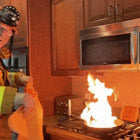 Fire
Fire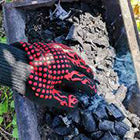 Safety
Safety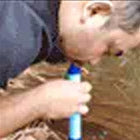 Survival
Survival Protection
Protection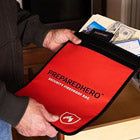 New
New
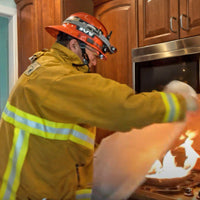 Fire
Fire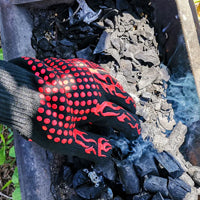 Safety
Safety Survival
Survival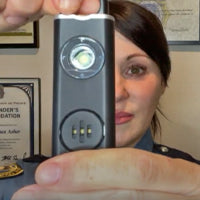 Protection
Protection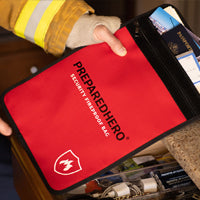 New
New
